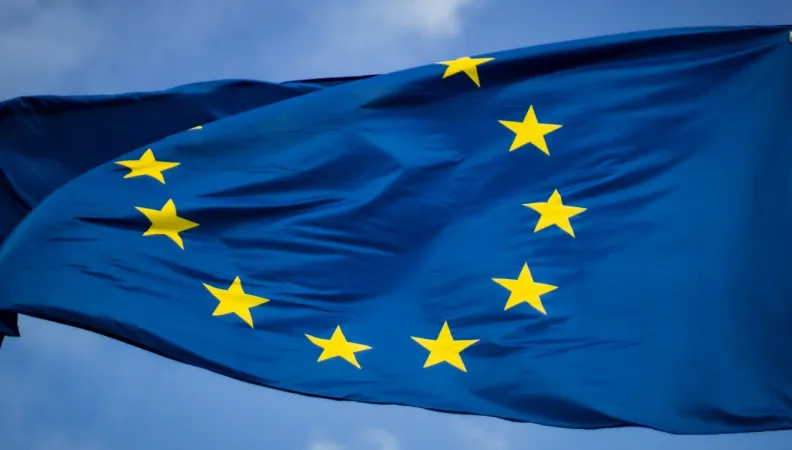Share the page
“The EU will continue to assert its Geopolitical Influence after the Elections”
Published on

EU citizens will be voting for their European Parliament representatives in the elections from June 6 to June 9. What impact will these elections have on Europe’s development policies? What role does the European Union play in development? We discuss these questions and more with Anna Lipchitz, AFD Group’s Head of European Affairs.
How will the European elections affect Europe’s development policy?
Anna Lipchitz: There shouldn’t be any dramatic changes, but certain clearly-established trends are set to continue. The two main political groups, the European People’s Party [a coalition of Christian-Democratic and Conservative parties] and the alliance of Socialists and Democrats will likely maintain their position in the European Parliament, with the Greens and [France’s governing party] Renaissance losing ground and the far right making significant gains. The European Commission will then be appointed, with its president and commissioners. There will likely be a political shift towards a more nationalist agenda and the protection of individual interests, with Europe’s private sector having a wider role and greater involvement in development policy.
Issues relating to energy and immigration will remain key priorities. Geographic reorientation will continue with further development of the European neighborhood strategy in the East, to provide a European response to the war in Ukraine, and support for countries applying to join the European Union. The Team Europe approach will be consolidated, and stronger ties developed with the European private sector. The European Commission will continue to assert its geopolitical influence, by promoting Europe’s offering on the international stage, in order to increase visibility on the ground and thus make a greater impact.
What do EU-delegated funds represent at AFD Group?
A. L.: AFD Group is one of the partners that uses the most EU funds, having been awarded almost €835 million in 2023, after a peak of €1.2 billion in 2022. Last year, three types of financial instrument were deployed: loan guarantees (€100 million), grants (€140 million) and blending, which involves combining European grants with our loans. The European Commission delegated €225 million to our Group last year for blending operations which generated €2.2 billion in AFD loans. Since 2014, our Group has been awarded €2 billion in European grants which has resulted in €12 billion in loans being allocated to 160 projects. Mobilizing European funds is therefore a vital part of our business plan.
The AFD – European Union Relationship Explained in one Infographic
The projected €840 million in delegated funds in 2024 depends on a number of factors, including our ability to provide responses to the European Commission on issues such as critical materials, Ukraine and links with the private sector. The signing and deployment of guarantees presents a key challenge in 2024.
Through our close partnerships with the European ecosystem – the European Commission, European bilateral donors, the EIB and the EBRD – we have established a consolidated vision of development issues. This relationship relies on three networks: that of bilateral public banks [Jefic, made up of AFD and its counterparts in Germany (KfW), Italy (CDP), Spain (AECID) and Poland (BGK), which AFD will chair from June 2024], the practitioners’ network [PN, currently chaired by Expertise France] and the EDFI network [comprising Proparco and its European counterparts]. As the only European institution with such an integrated global offering, AFD Group plays an integral role in these various networks.
What types of development project can these funds be used to support?
A. L.: I can give you three examples of particularly inspiring and foundational projects! In Vietnam, as part of the Just Energy Transition Partnership (JETP), the Team Europe Energy Transition Facility is supporting the country with its strategy to phase out coal and become carbon neutral. €16 million has been awarded by the European Union and €2 million by AFD for technical assistance, which will be combined with a projected €1 billion in loans from AFD, KfW and the EIB, to invest in the energy transition, including renewable energy production, storage systems and electricity distribution and transmission grids. We would like to replicate this approach with the European Union in other countries.
See also: Reducing Reliance on Carbon in Vietnam, and Making it More Resilient to Climate Change
In Tanzania, the Tanzanian government, AFD Group, the European Union and the African Development Bank are working together to build a dam and hydropower plant in the Kagera region that will supply electricity to between three and four million people, while reducing greenhouse gas emissions. The country has significant potential for renewable energy production, which it plans to harness amid rapid population growth.
Finally, as part of the first Jefic co-financing operation between KfW and AFD, the two institutions have awarded a €150 million loan to Fondo MiVivienda in Peru. This project will provide over 1,500 households in Peru, or around 6,500 people with access to decent and sustainable formal housing. A specific objective has been set to improve access to housing for women, and facilitate access to mortgage loans for residents living outside the country’s capital, Lima.
